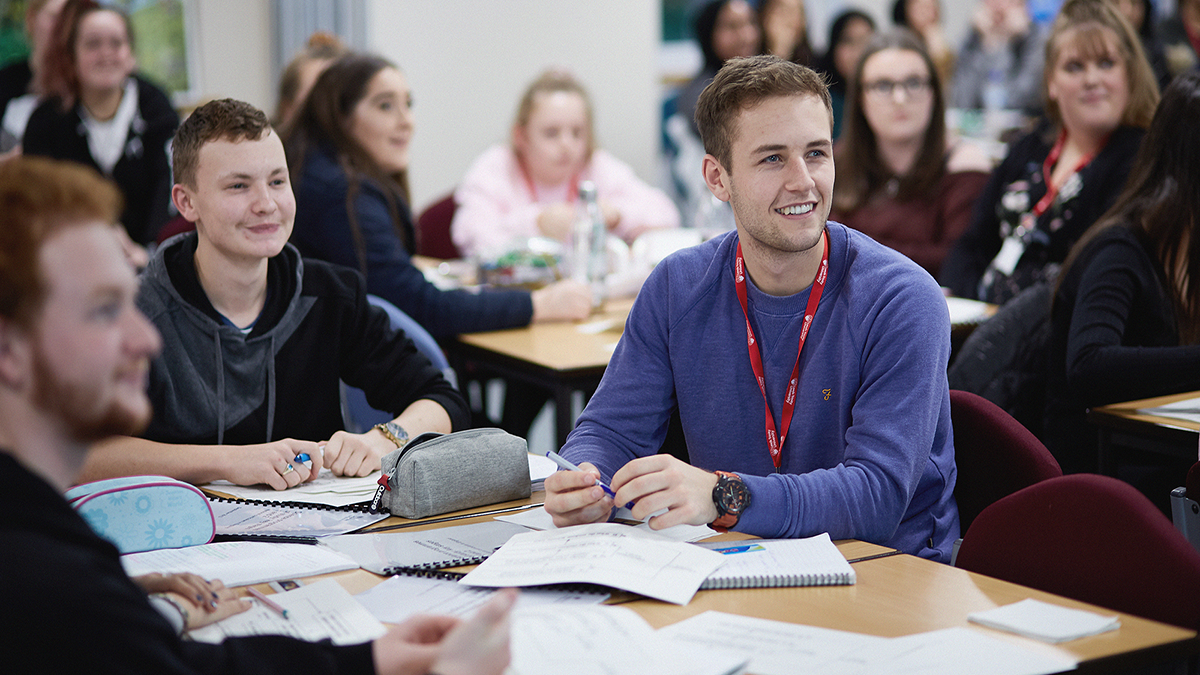Dr Caroline Neuberg, Senior Lecturer from the School of Education at Leeds Trinity University is leading a research project aiming to demonstrate the need for mathematical support for science teacher trainees and encourage change at a national level.

The project is a joint effort between Dr Caroline Neuberg and co-investigators Dr Liz Nourshargh, Educational Consultant at the Institute of Physics and Ally Davies, Subject Advisor for GCSE Science, Oxford, Cambridge and RSA Examinations (OCR). OCR is one of the five main examination boards in England, Wales and Northern Ireland.
Data collection and analysis involving a survey of Science Initial Teacher Training providers and their trainees showed a systemic lack of focus on mathematical skills in training, with 70% of trainees expressing a lack of confidence when marking pupils’ responses to eight GCSE-level mathematical questions, and only 15% of trainees accurately and confidently marking these questions.
The research will help inform policy and implement change at a national level, providing more mathematical support for secondary science teacher trainees to overcome anxiety associated with the use of mathematics in the delivery of the curriculum when it comes to science.
The researchers have already started taking actions to improve trainees’ confidence. Dr Caroline Neuberg has been providing increased maths support, including four targeted extracurricular sessions to trainees who specifically expressed concerns about their maths abilities. Dr Liz Nourshargh and Ally Davies have also expanded the maths and science skills support they provide at the Institute of Physics and the OCR.
Dr Liz Nourshargh said: “As a Teacher Support Coach with the Institute of Physics, I ran a series of online Continuing Professional Development (CPD) sessions focussed on the maths skills required for learners to be successful in GCSE Science, particularly Physics. These sessions were very popular and ran for over two years; I wanted to understand why so many teachers reached out for support with maths skills, and working with Caroline and Ally on this project has begun to provide an explanation.”
Dr Caroline Neuberg, Senior Lecturer in Education and an expert in geophysics and astronomy, said: “I decided to carry out this research when I realised, as a new teacher educator, that it is the fear of mathematics, and not necessarily the lack of physics knowledge, that lies at the heart of the anxiousness expressed by some science trainees at the prospect of teaching Physics or other mathematically-rich topics in Science.
“I have witnessed science trainees feeling so concerned that they physically refused to engage with a mathematical task. That is what we want to change. Developing their mathematical confidence is fundamental: it will help with the enjoyment of teaching and thus with retaining them in the profession. We hope that our project will get enough attention to encourage a systemic change at a national level. There needs to be an awareness of the issue from trusts and stakeholders to further support the development of the trainees.”
The results of the investigation were recently presented at the Association for Science Education National Conference, with more impact and action to come once the research is published in June.
To find out more about studying Education at Leeds Trinity University, please visit the website.
Leeds Trinity University's Corporate Communications team is the first point of contact for local, national and international media.
Looking to source a comment or would like to arrange an interview with one of our academic experts? Contact the team on +44 (0) 113 283 7100 or email the Communications team.